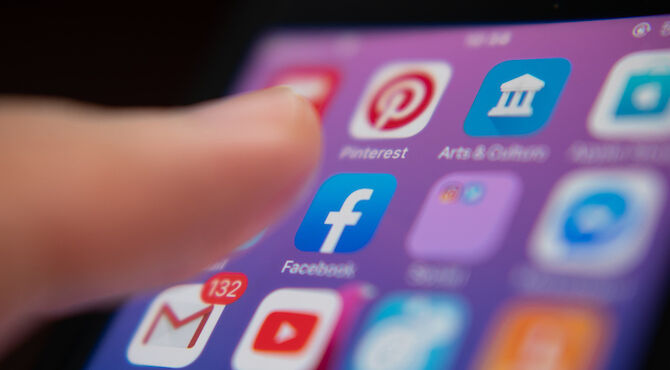World Mental Health Day 2022: safeguarding mental wellbeing – keep it real
New figures reflect the need for authenticity as 44% of young people say that comparing their lives to the unrepresentative lifestyles of influencers has been detrimental to their mental health

Related reading from Relocate Global
- World Mental Health Day 2022: global survey highlights growing disengagement
- World Mental Health Day 2022: economic turbulence fuelling burnout
- Financial wellbeing at the heart of employee satisfaction and productivity
Substance over style
Room Unlocked's study revealed this is particularly true amid ever-worsening economic conditions. Over half (52%) of Gen Z states they find the cash-rich lifestyles of influencers infuriating amidst the cost-of-living crisis. This research of a nationally representative sample by Room Unlocked – a value exchange marketplace where brands swap products or experiences for exposure from influential people – revealed 61% of Britonss say they cannot relate to or identify with any influencers because of how disingenuous they are.A further 37% say they “identify more with influencers who post with a social cause at the heart of their content”, which Room Unlocked says highlights the need for content creators to use their platforms not just for financial gain, but to make a positive difference in society.The links to employer branding
Alex Payne CEO and co-founder of Room Unlocked, comments: “Authenticity has quite rightly become king amidst an industry that has been awash with disingenuous content throughout the years, and this is becoming increasingly easier to spot."There’s been a wave of people leaving their jobs to chase this career path meaning there’s more competition by way of choice and as such, brands can pay less. We provide a platform for people to connect and create mutually beneficial and lasting relationships regardless of the current climate."The need for authenticity is particularly resonant in the employer branding space. Cognitive dissonance between policy and action, for example around diversity, equity and inclusion, leads to disengagement and attrition, as well as potential damage to corporate reputations.This partly explains the rise in authentic leadership and growing interest in its links to employee wellbeing and people’s ability to bring their whole selves to workplaces that are psychologically safe.
‘People, purpose and planet’
Speaking at June’s Future of Work Festival where these and other leading-edge ideas were explored, Teresa Boughey, MA Chartered FCIPD, founder and CEO of national award-winning Jungle HR, said: “Going forward, organisations will need to be focused on three key areas: people, purpose and the planet.“People want something different post-Covid. They are looking for an organisation that is in tune with the ideas of its workers. They want to know that it provides great customer service and a great product or customer service solution rather than just making profit.“In terms of the planet and environment, organisations need to think about how they meet sustainable goals. This should be deep in the DNA of a company, rather than window-dressing. How do we do this authentically, not just in addition to the day-to-day job, but as part of everyday operations?”Follow for more Global Health and Wellness news and features from Relocate Global
Subscribe to Relocate Extra, our monthly newsletter, to get all the latest international assignments and global mobility news.Relocate’s new Global Mobility Toolkit provides free information, practical advice and support for HR, global mobility managers and global teams operating overseas.
 Access hundreds of global services and suppliers in our Online Director
Access hundreds of global services and suppliers in our Online Director©2026 Re:locate magazine, published by Profile Locations, Spray Hill, Hastings Road, Lamberhurst, Kent TN3 8JB. All rights reserved. This publication (or any part thereof) may not be reproduced in any form without the prior written permission of Profile Locations. Profile Locations accepts no liability for the accuracy of the contents or any opinions expressed herein.






























